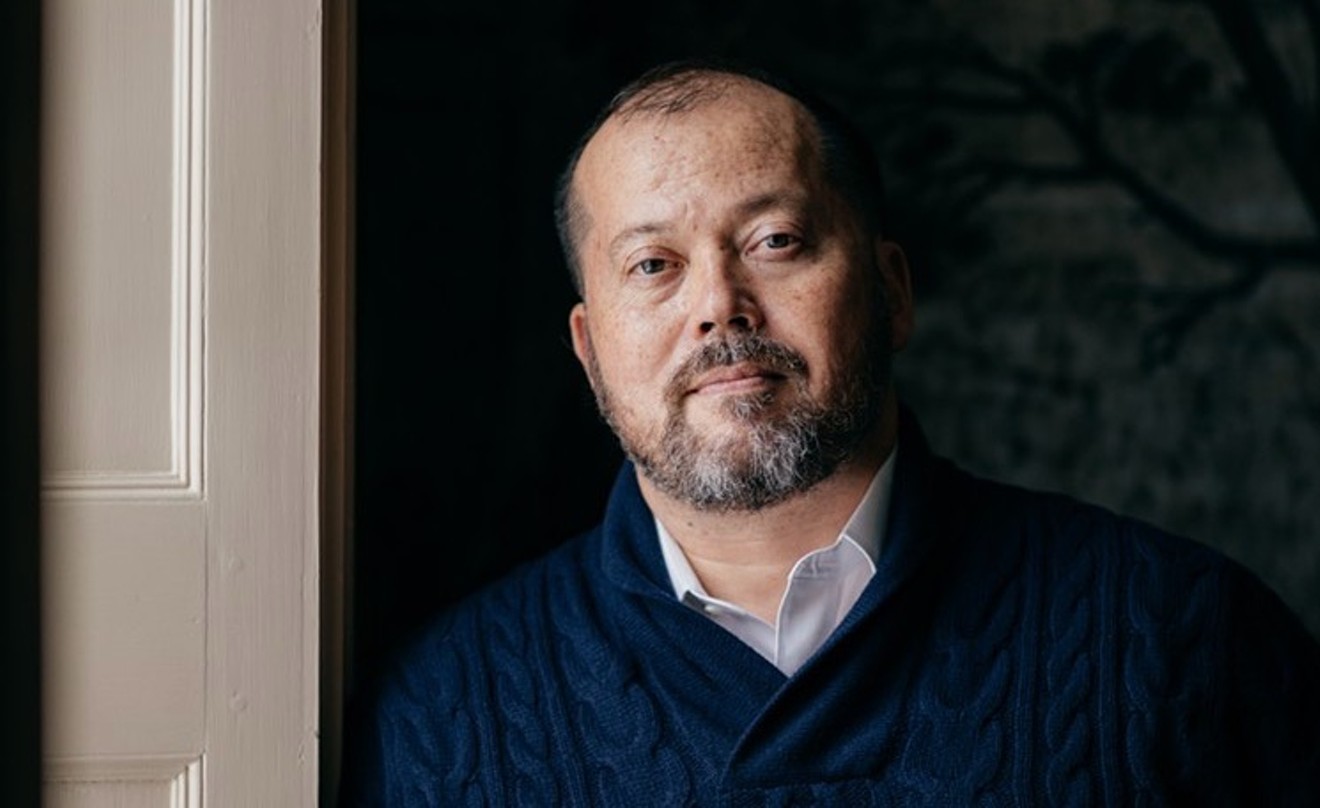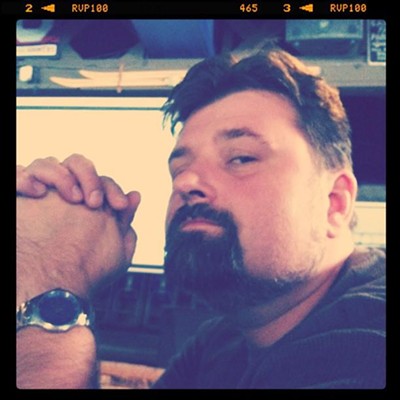Alexander Chee’s new book of essays, How to Write an Autobiographical Novel, is as much memoir as it is how-to. It covers a wide range of subjects, all of them intensely personal to the widely known writer with a number of identities: Korean-American, gay man, X-Men fanboy, essayist, novelist, professor and activist. But no mere list of qualifiers explains Chee's impact on the literary scene today.
Chee is the most recent guest of CU Denver Creative Writing, specifically invited as part of the Jake Adam York Memorial Reading, which showcases writers whose work “engages with issues of social importance.”
Westword spoke with Chee in connection to that annual event and his highly regarded collection of essays.
Westword: You first gained acclaim with your novel Edinburgh, but your newest book is a collection of essays, How to Write an Autobiographical Novel. What led you to switch forms in that way?
Alexander Chee: I don’t see it as a switch, but simply an expansion. I’ve been writing essays since before I wrote my first novel, and when I sat down to put the collection together I had seventy or so to choose from. I even had readers who thought of me more as an essayist. The collection has sixteen essays drawn from the last 25 years, including essays on the writing of that first novel, and tells a story of my development from a boy who first wrote stories to entertain himself after running out of things to read while on a trip, to my being an author and a teacher of writing.
The book talks about your studies with the great essayist Annie Dillard. What influence did she have on your work then, and how has that influence shifted over the years of your career?
Her influence was and is vast, and ranges from making me an essayist to teaching me how to make a living as a writer to teaching me how to teach writing. I don’t have a sense of the influence shifting. It remains as it was, a foundation I still value.
There are so many detailed moments from your book that deserve mention, but one of my favorites is your stint as a tarot card reader. Anything new about that experience that you can share with us?
A memory that isn’t in there is of my experience reading cards at parties and seeing certain cards repeat throughout different readings for people who were in relationships or who worked together. I remember a magazine launch, and all of the editors had 7 of Swords in different places, a card that can mean a leadership crisis or challenge, and that was tense. I stopped reading at parties soon after that. I didn’t want that kind of information about the group.
Speaking of psychic powers, let's get a little Jean Grey. Or are you more an Emma Frost fan? Or Professor X, or Rachel Summers, or Psylocke? (There is no shortage of psychics in mutantkind.) Talk a little about the influence comics had on your development as both a writer and a person.
Together they’re a story about my life. We start with the Jean Grey Dark Phoenix storyline in X-Men, one of the most thrilling narrative experiences I had as a boy. I’ll always love her. Then Rachel as the Hound haunted me deeply, and I did even wear a dog collar a few times in homage as a young man. Then came Psylocke, especially her X-Force run, and with time also Emma Frost, especially after X-Factor, "Dark Reign" and "Old Man Logan." Even Kid Omega. I count Xi’an also, Karma, and currently I love Generation X’s Nathaniel Carver.
Whether I wanted to be more powerful than my enemies (Jean) or wanted revenge on them (Rachel) or wanted to be smarter than them (Emma) or simply fearless in this life (Psylocke) or to just have fun with fighting them (Kid Omega), there was an X-team psychic for me. I just have never once felt close to Professor X.
As for how they affected my writing, that’s a whole other essay. I wrote about it in an essay that’s not here, “I, Fanboy,” but there’s probably more to say.
There's a fascinating theme of identity and "passing" in How to Write an Autobiographical Novel, and much of your work in general. Passing as Mexican in "The Curse," passing as female in "Girl." What is it about masks, literal or figurative, that turns us inside out so easily?
We either want to believe our connection to our identity is more certain than it is, or we don’t want to believe it. The mask can destabilize either certainty.
How deep do you think our masks go? Does the "true self" exist, do you think, or is it just a series of situational facades covering up our core question marks? I ask because it's clear that the most judgmental of those among us are often the ones most desperately wanting the world to believe the face they've chosen to show. But is that true for all of us? Are some people just better at feigning complexity?
There’s always a distance between the person we are and the person we want to be. But I just think our identity is more complex than that. It isn’t that I think we have a series of situational facades, but that our desires and fears push us constantly, and we rewrite ourselves as we go.
How to Write an Autobiographical Novel includes something taken from an email you'd sent your students after the start of the Gulf War, and you connect that to the current Trump era. Can you talk a little about that email — what you said and what you wanted to communicate to your students?
I was just trying to get across to my students that writing was something significant to do. That we were being told to be helpless, told we were useless, even though we are the ones fascists move against first. Don’t believe what they say; believe what they target. That is what is most powerful when used against them. It isn’t decorative to be a part of the arts, but instead, something that puts you at the center of the culture. Don’t believe what they say; believe what they target. That’s what they fear.
You write a lot about truth, both in the objective and the subjective. How would you define the state of truth in America today?
We have it. We’re just letting people ignore it. We’ve known since the ’60s about climate change. The air-quality rules being reversed by the administration were shown to kill people, and Trump’s EPA admitted as much last August as they acted against it. Gun violence data shows restrictions work. Health insurance data shows public health plans control costs. We have the truth. What are we going to do? Die waiting for someone to be nice enough not to ignore it? Or take action? That is the state of the truth. You have it, so what are you going to do about it?
Alexander Chee Reading (Jake Adam York Memorial Reading), 6:30 p.m. Thursday, April 11, St. Cajetan’s, 900 Auraria Parkway on the Auraria campus.
[
{
"name": "Air - MediumRectangle - Inline Content - Mobile Display Size",
"component": "12017618",
"insertPoint": "2",
"requiredCountToDisplay": "2"
},{
"name": "Editor Picks",
"component": "17242653",
"insertPoint": "4",
"requiredCountToDisplay": "1"
},{
"name": "Inline Links",
"component": "18838239",
"insertPoint": "8th",
"startingPoint": 8,
"requiredCountToDisplay": "7",
"maxInsertions": 25
},{
"name": "Air - MediumRectangle - Combo - Inline Content",
"component": "17261320",
"insertPoint": "8th",
"startingPoint": 8,
"requiredCountToDisplay": "7",
"maxInsertions": 25
},{
"name": "Inline Links",
"component": "18838239",
"insertPoint": "8th",
"startingPoint": 12,
"requiredCountToDisplay": "11",
"maxInsertions": 25
},{
"name": "Air - Leaderboard Tower - Combo - Inline Content",
"component": "17261321",
"insertPoint": "8th",
"startingPoint": 12,
"requiredCountToDisplay": "11",
"maxInsertions": 25
}
]













